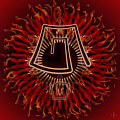|
French literature has had a profound effect on the material that Americans read, and children's literature is no exception. Historically, the French have taken literature and other fine arts seriously, nurturing a culture of writers, artists and thinkers. While tastes and politics change, and therefore the effect of any given culture on other cultures varies, French literature and French culture in general have affected the way that writers write, critics respond, and readers read. During the 17th century, there arose in France a controversy as to the merit of more contemporary literature when compared to that of the ancients. This controversy eventually open the door for more modern material to be added to the canon that up to that time had been rigidly set and validated regionally influence literature as well as newer styles. One important element that came from French literature is the Conte, " a short tale, often recounting an adventure" ("conte"). These short stories are presented in various forms including verse, horror, and children's literature. Certainly the most notable era in the influence of French culture on children's literature is during the 17th century and particularly Charles Perrault (1628-1703) who is most noted for Tales of [my] Mother Goose (Contes de ma mčre l'oye) (1697), a collection of regional "folktales, which Perrault retold in a style that is simple and free from affectation" ("Perrault, Charles") specifically for children. This important work, which included popular tales such as Puss in Boots, Cinderella, Little Red Riding Hood, and The Sleeping Beauty, inspired the creation of an English-language based Mother Goose as a figure for storytelling for children which included both fiction as well as poetry.
Works Cited © T. T. Eiland, August, 2006 |
